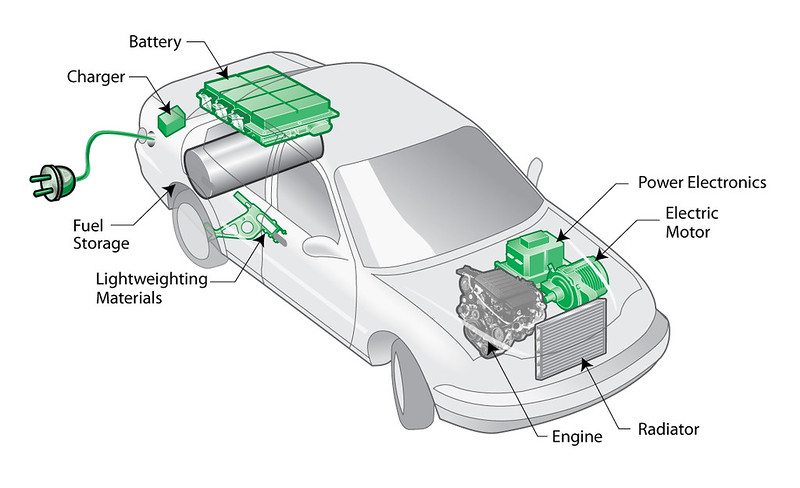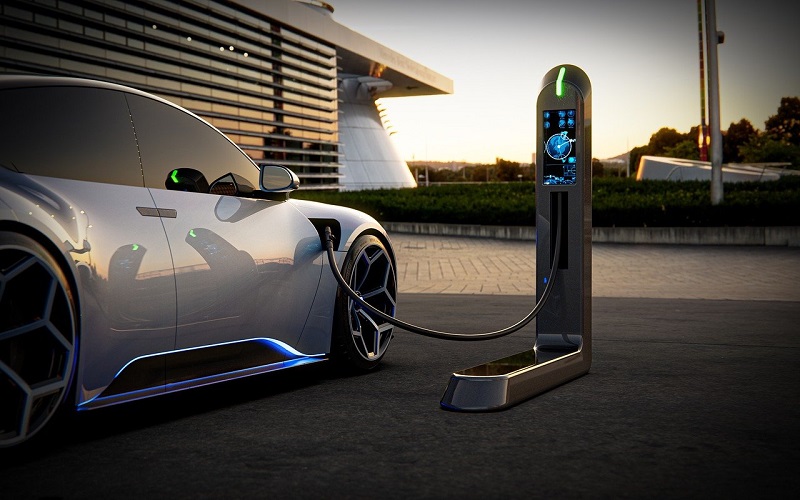A new addition to the automotive industry, electric vehicles are increasing in demand and different vehicles are available such as cars, buses, motorcycles, etc. The automotive industry is trying to switch over to environmentally friendly vehicles. It is because of factors like growing demand for low combusting options and the government supporting zero-emission vehicles. There are there types of electric cars or vehicles available in the market and every single vehicle type have own advantage and one can own by vehicle’s features.
Electric cars have an electric motor instead of an internal combustion engine. The vehicle does not emit exhaust because it runs on electricity. But, when cars with internal combustion engines are available, why should you get an electric car?
There are many reasons why one should invest in electric cars, today. Electric cars save loads of money spent on fuel, are easy-to recharge, do not emit toxic gases in the environment, and are also cost-effective.
The new types of electric cars in the market have three variants, hybrid, plug-in hybrid and fully electric car.
3 Types of Electric Vehicles:
Modern-day technology is advancing day by day. Owning an electric car requires a different approach. Likewise, you have three various options to choose from. At Automotive, we have presented you with a detailed account of all three types of electric cars for you to make an informed decision.
1. Hybrid (HEVs):

The traditional gasoline-electric are the most reliable electric vehicles. But, on the other hand, they are not emission-free. They have an electric motor that runs on gasoline. Both the gas engine and electric motor run together to spin the wheels, resulting in less fuel combustion. Hence, justifying its name, Hybrid (HEVs).
Hybrid Technology
The technology of hybrid cars has an electric motor, a small gasoline engine and at least one battery pack. Hybrid technology has been in the market for over 20 years. In hybrid cars (HEVs), the electric motor supplements the gas engine and allows it to shut off at low speed. The regenerative braking technology lets hybrids recapture the energy and prevent it from being lost and use it to recharge battery packs.
Pros of hybrid (HEVs)
They are a stepping stone for automotive industries to produce fully electric vehicles. The advantages of hybrid cars are:
- They have cleaner emissions: The hybrid cars have both electric motors and gasoline engines. This technology reduces emissions and is environmentally friendly.
- Hybrid cars are less fuel-dependent: The electric motor provides additional support to the engine. Hence, they are less dependent on fuels.
- They have smaller and more efficient engines: Hybrid cars have smaller engines as they don’t have to depend entirely on the engines and have electric motors for the support.
- Hybrid cars have regenerative braking: The regenerative braking technology generates electricity and recharges the battery every time the brake is applied. It prevents the need to stop the vehicle from charging.
- Often more powerful than gasoline-only cars: Instead of just one, hybrid cars have two power sources, the gasoline engine and electric motor. Hence, they are more powerful than only gasoline equivalents.
Cons of hybrid (HEVs)
While there are many advantages of hybrid cars, there are also disadvantages which include:
- Hybrid cars have an expensive cost: Hybrid cars cost $1000 to $3000 more than their gasoline equivalents.
- They have lower performance: The power or acceleration can sometimes lag behind the gasoline engines.
- They have longer stopping distances: In CR’s testing, some hybrid cars have longer stopping distances than their gasoline equivalents.
- Hybrid cars have a high maintenance cost: With two sets of engines and several mechanical parts, the maintenance cost of hybrid cars is on the higher side.
Should you buy a hybrid car?
A hybrid car is high maintenance and expensive for the general public. While it can cut down on fuel expenses, is not worth buying in the present times. We would suggest that before buying, consider all the outlays and make an informed decision.
2. Plug-In Hybrids (PHEVs):

The plug-in hybrid vehicles bridge traditional gasoline cars and hybrid cars. They allow driving on electric power locally and can switch to gas engines for longer journeys.
Plug-in hybrids Technology
Plug-in hybrids (PHEVs) have a larger battery than hybrid cars. This allows the owners to drive more often on electric power. Likewise, hybrid cars and plug-in hybrids also have regenerative technology which can extend the battery’s range. Owners can switch from electric motor to gasoline engine whenever required. Compared to fully electric cars, battery packs are smaller in plug-in hybrids. Hence, owners can get by with Level 1 charging.
Pros of plug-in hybrids (PHEVs)
The plug-in hybrids are advantageous more than the hybrid cars in the following ways:
- They have zero-emission commuting: For short distances, plug-in hybrids can run on electric motors and produce zero-emission.
- Can travel on electric power: Plug-in hybrid can travel up to 40 miles on electric power. Hence, they are perfect for local driving.
- They are pro incentives: Some of the plug-in hybrids are also eligible for a federal tax incentive of up to $7500.
Cons of plug-in hybrids (PHEVs)
With several advantages, plug-in hybrids also have some disadvantages, which include:
- Expensive cost: Plug-in hybrid cars are more expensive than gasoline and hybrid cars.
- Requires frequent recharging: The entire efficiency of plug-in hybrids can be achieved only when it is charged frequently.
- Plug-in components require space: The Plug-in components of the car require almost cargo space.
- Less powerful engine: Some plug-in cars have less efficient engines and are less powerful than hybrids once the electric portion is depleted.
Should you buy a plug-in hybrid?
If you use cars primarily for local travels, work and play, a plug-in hybrid is a good option. You can go fuel-efficient and run totally on electric power for local drives.
3. Fully Electric Cars (BEVs):

The fully-electric cars are very efficient and can run up to 200 miles. They are battery-run and require charging through electric ports.
Fully Electric Car Technology
Fully electric cars run on electric motors powered by large battery packs. They do not have an internal combustion system. When the battery is almost 0, it requires 8-10 hours to fully charge it. The battery is charged using a level 2 (240 volts) charger.
Pros of battery electric vehicles (BEVs)
Fully electric cars (BEVs) are the latest addition to the automotive industry. The following are the benefits of electric cars:
- Fuel efficient: The car is fully electric and does not require external fuel for power. Hence, charging the battery is a lot more efficient than filling up fuel.
- Low maintenance cost: The components used in the car are simple. Hence, they require low maintenance costs.
- Zero-emission: The fuel-efficient, fully electric cars do not emit toxic gases into the environment.
- Zero-noise: The electric cars are very quiet.
Cons of battery electric vehicles (BEVs)
The cons of fully electric battery-run cars include:
- Expensive cost: The latest technology for fully electric cars has costs on the more expensive side than gasoline or hybrid cars.
- Requires prior planning for long travels: The longer travels require prior planning for charging the battery.
- Charging requires loads of time: Battery charging requires up to 8-10 hours, and even fast charging requires 30-60 minutes.
- Harsh temperatures affect driving: Very high or low temperatures can affect the driving ranges in fully electric cars.
Should You Buy A Fully Electric Car?
Take note of its cons, and if you can overcome them, fully electric cars are a great option. They are environmentally friendly and needed for the future.
Conclusion
Electric car types are more popular nowadays even though electric cars are more expensive than traditional gasoline cars. But, they are eligible for tax incentives in many areas. Environmentally friendly cars are a step towards our sustainable future.
They are bridging the gap between gasoline cars and environmentally friendly options vehicles. If you are planning, to buy an electric type car, go through the pros and cons, calculate the expenses and make an informed decision.
